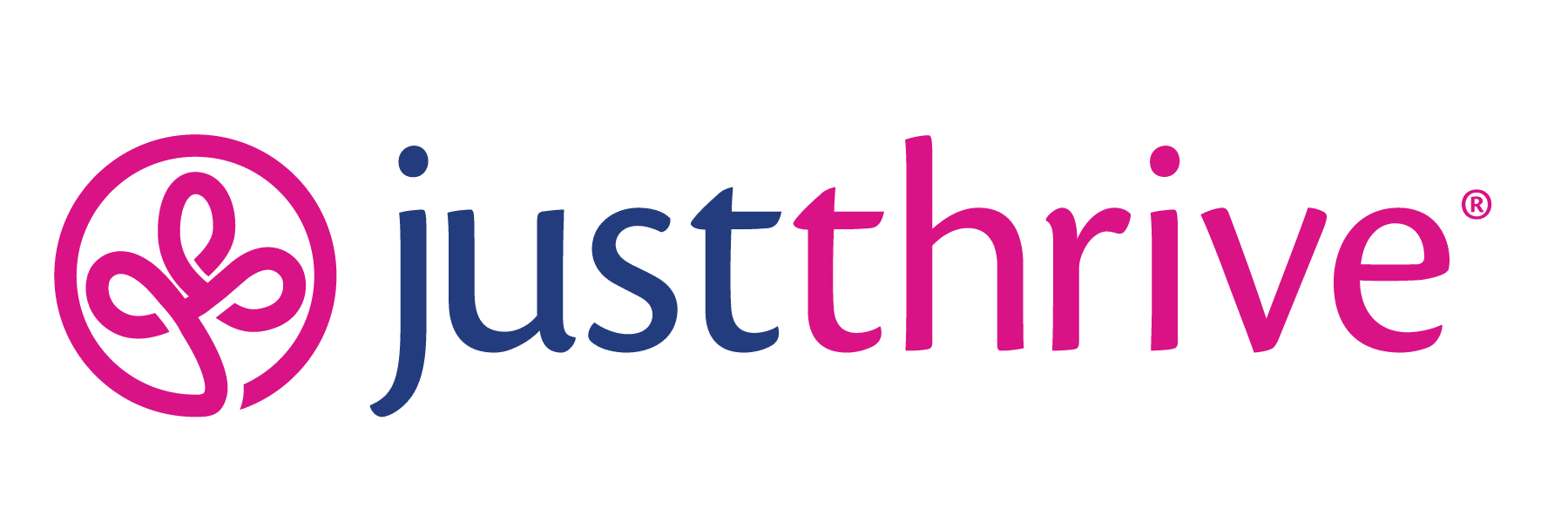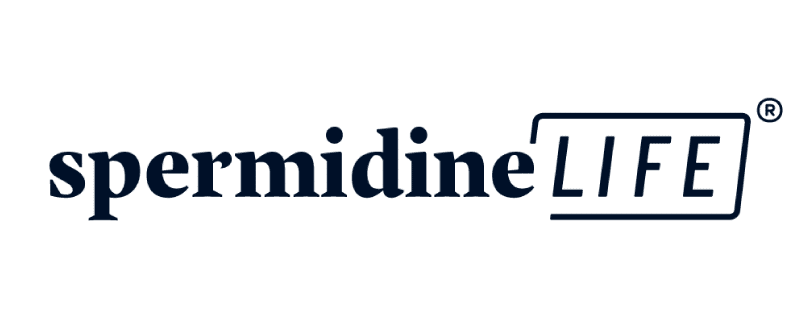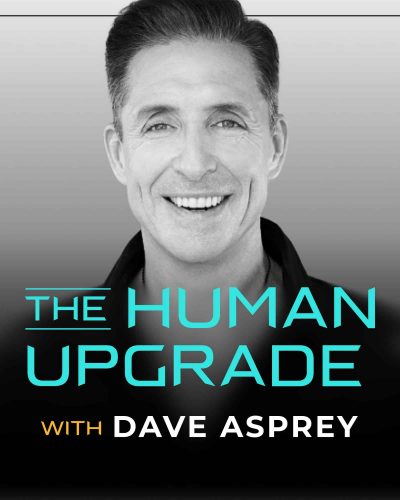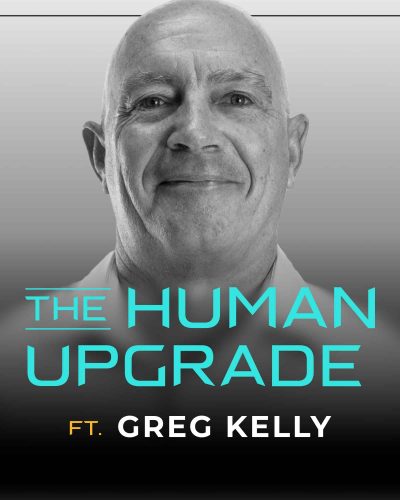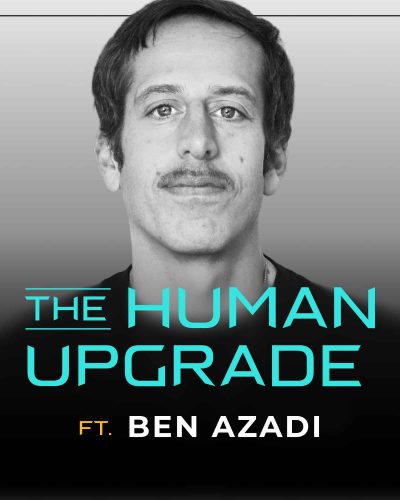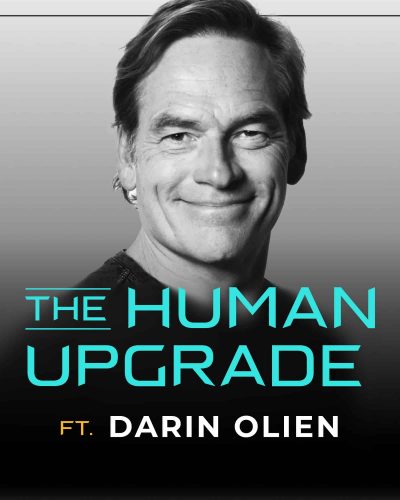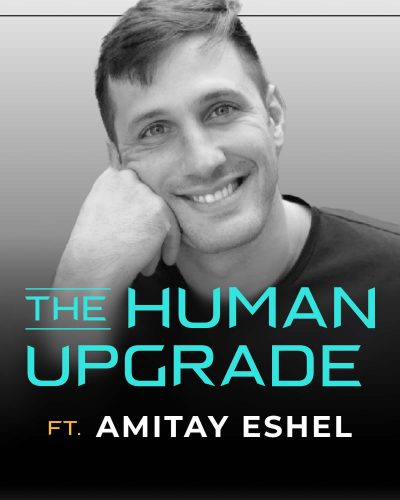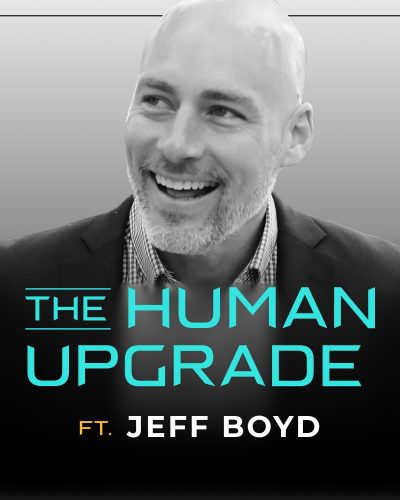In this Episode of The Human Upgrade™...
…you’ll learn about a strain of probiotics called psychobiotics. This strain shows promising effects on stress relief, anxiety, mood, sleep and other important gut-brain axis connections.
Microbiologist Kiran Krishnan, Ph.D., explores the human microbiome and how it functions so you can have better gut health. He has an extensive research background in the fields of molecular medicine and microbiology. His particular expertise lies in gut commensal spore bacteria microbiology.
He’s been a guest on the show before to educate listeners about probiotics and the connections between your microbiome, inflammation and immune function. This time, he’s sharing exciting research about a probiotic strain that’s tackling the gut-brain axis, called Bifidobacterium longum 1714™.
(See Links & Resources below for related research and episodes.)
Many people experience gut dysfunction in some way, such as digestive issues, IBS-like symptoms, loose bowels or food sensitivities.
“Not only may that be affecting your mood and your ability to sleep,” Kiran explains, “but it’s actually acting in a toxigenic manner to your brain overtime and driving all kinds of long-term neurodegenerative conditions. (These conditions include Alzheimer’s, dementia, Parkinson’s and others.) What you may be experiencing now as indigestion and bloating and discomfort, and then the corresponding anxiousness, mood disorders, inability sleep are actually early symptoms of much more serious issues that are coming down the road.”
Big topics covered in this episode include:
- Basic mechanisms by which the gut microbiome can influence neurochemicals and brain inflammation
- The gut-brain connection as it relates to stress coping and mental health
- How cortisol and interleukin 6 drive stress response and inflammation in your whole body
- Variables that can cause a breakdown or dysfunction in the psychobiome
- Therapeutic interventions, including psychobiotics that can help correct gut-brain axis dysfunction
"A healthy gut is incredibly supportive to the brain. But on the other end of the spectrum, an unhealthy gut is not only not supportive, but it's arguably one of the most toxic things for the brain.”
Kiran Krishnan, Ph.D.
Kiran’s great at explaining the science so you clearly understand what the studies mean and can apply new knowledge to your own biology. He also partners with Just Thrive Health on product research and development.
He talks about the Just Calm probiotic product that pairs amazingly well with the standard Just Thrive spore formula. “The reason for that is the spores dramatically reduces LPS, lipopolysaccharides circulating in the body by slowing down the leakiness of the gut,” Kiran says. “LPS is one of those key triggers of inflammation in the brain and the central nervous system that drives anxiety and drives mood disorders.”
More about Kiran Krishnan, Ph.D.: For nearly 20 years, he’s conducted dozens of human clinical trials in human nutrition. He published a leaky gut study showed reversal of gut enteropathy within 30 days and now is leading a longer Leaky Gut trial. His current research includes other ongoing human clinical trials, some of which test the effect of gut-commensal spore probiotics on conditions like Thyroid/Hashimoto’s, Irritable Bowel Syndrome and Liver Failure.
SPECIAL OFFER FOR BULLETPROOF RADIO LISTENERS: Go to https://justthrivehealth.com. You’ll find their new line, Joot, and their new Just Calm probiotic for stress management and mood support. Just Calm features the proprietary “psychobiotic” strain BL 1714™ combined with brain-nourishing B vitamins. You’ll also find other products that tackle gut health and inflammation. Use code ASPREY to get a 15% off discount.
Enjoy the show!
LISTEN: “Follow” or “subscribe” to The Human Upgrade™ with Dave Asprey on your favorite podcast platform.
REVIEW: Go to Apple Podcasts at daveasprey.com/apple and leave a (hopefully) 5-star rating and a creative review.
FEEDBACK: Got a comment, idea or question for the podcast? Submit via this form!
SOCIAL: Follow @thehumanupgradepodcast on Instagram and Facebook.
JOIN: Learn directly from Dave Asprey alongside others in a membership group: ourupgradecollective.com.
- Our Partners
- Links & Resources
- Key Notes
Trigger Autophagy:
https://spermidinelife.us/dave, use code DAVE25 for 25% off your first month’s order
Website: justthrivehealth.com
Facebook: facebook.com/justthrivehealth/
Twitter: twitter.com/JustThriveHlth
Instagram: instagram.com/justthrivehealth/
YouTube: youtube.com/channel/UC-7z1Mi_Ju7BKQYdbqY_27g/featured
Related Research:
- Improvements in sleep indices during exam stress due to consumption of a Bifidobacterium longum
- Bifidobacterium longum 1714™ Strain Modulates Brain Activity of Healthy Volunteers During Social Stress
- Bifidobacterium longum 1714 as a translational psychobiotic: modulation of stress, electrophysiology and neurocognition in healthy volunteers
- Bifidobacteria modulate cognitive processes in an anxious mouse strain
- Bifidobacteria exert strain-specific effects on stress-related behavior and physiology in BALB/c mice
Previously on Bulletproof Radio:
- What we’re going to learn about today is the cognitive benefits, and the brain-modifying benefits of certain species of gut bacteria. – 1:17
- One really important message that I want people to really wrap their heads around and understand when we’re talking about the gut-brain access. – 3:27
- Parkinson’s and Alzheimer’s are tied to bad gut bacteria from years. – 6:01
- As it turns out, natural commensal bacteria that produce high levels of peptidoglycan are critically important not only for balancing mood, reducing inflammation, but negating the negative effects that cortisol has in the gut. – 8:01
- Glycans are critically important, and this particular peptidoglycan from the 1714 strain seems to be able to completely negate the inflammatory response that stress causes in the gut and the leakiness in that stress causes in the gut. – 13:23
- Stress response is so critical for a survival of our species, but they were able to flee away from the danger and then come down from it versus a modern human, perceive danger, most of it is not life threatening, but they perceive danger and then they can’t come down from it. So that’s a critical difference. – 17:22
- The other thing that IL6 does, it’s especially egregious when it comes to stress response, is it reduces the expression of things called glucocorticoid receptors. – 22:27
- I take cortisol as a bioidentical form. Is this going to eat my cortisol? Is it going to make me not have enough or is it going to work systemically but it just takes it out of the gut where it’s not helping? – 24:26
- If you have this continuous HPA activation due to stress and the inflammation that goes along with it, there’s a shift to metabolizing tryptophan to something called kynurenine and quinolinic acid, which are actually neurotoxic, and those neurotoxic compounds prevent the release of things like melatonin. – 29:21
- The neurodegenerative conditions when the mitochondria and the neurons start to die off, and we start to see reduced ATP production over time, that is a hallmark of aging. – 33:28
- When people took the probiotic for 30 days before doing this experiment, what we found was a dramatic increase in theta wave function, right? That’s the flow state. – 35:52
- One of the things that LPS can do that is pretty egregious is bind into these parts of the neurons called nociceptors, and when it binds into these nociceptors, it triggers pain signaling. – 46:35
- What kills 1714, this new strain in Just Calm? Is glyphosate going to take it out? I’m guessing antibiotics take it out. What are the things that it hates? – 49:54
- The probiotics are the specific species that eat the prebiotics, and then you have postbiotics, which is basically what the good bacteria poop out when they’re done metabolizing something, and the most famous one of those is butyrate or butyric acid, which is made in the gut. – 53:35


